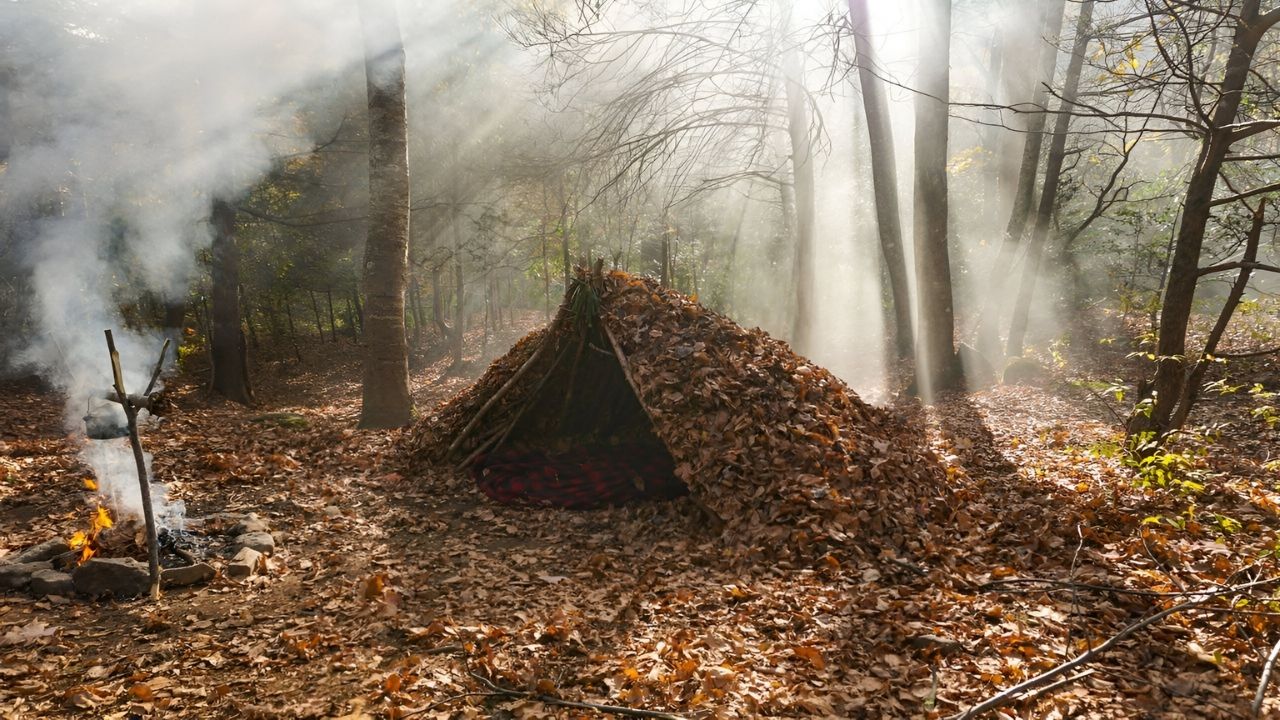
Bushcraft is all about surviving and thriving in the wild using skills and knowledge passed down through generations. But what exactly makes bushcraft so fascinating? Bushcraft involves mastering the art of living off the land, from building shelters to finding food and water. It's not just about survival; it's about connecting with nature and understanding the environment. Whether you're a seasoned adventurer or a curious beginner, these 29 facts about bushcraft will give you a deeper appreciation for this ancient practice. Ready to learn some cool stuff? Let's dive into the world of bushcraft and uncover its secrets!
What is Bushcraft?
Bushcraft is the art of surviving and thriving in the wild using skills and knowledge of the natural environment. It involves making tools, building shelters, and finding food and water. Here are some fascinating facts about bushcraft that highlight its importance and versatility.
-
Bushcraft Origins: The term "bushcraft" originated in Australia, where "the bush" refers to remote, undeveloped areas.
-
Ancient Skills: Many bushcraft techniques date back thousands of years, used by indigenous peoples worldwide.
-
Survival vs. Bushcraft: While survival focuses on staying alive in emergencies, bushcraft emphasizes living comfortably in nature.
-
Fire Making: One of the core bushcraft skills is fire making, often using friction methods like the bow drill.
-
Shelter Building: Knowing how to build a shelter from natural materials is crucial for protection against the elements.
Essential Bushcraft Tools
Having the right tools can make all the difference in bushcraft. These tools help you perform tasks more efficiently and safely.
-
Knife: A good bushcraft knife is versatile, used for carving, cutting, and even fire making.
-
Axe: An axe is essential for chopping wood and building shelters.
-
Saw: A folding saw is useful for cutting larger pieces of wood without the bulk of an axe.
-
Fire Steel: Fire steel or ferrocerium rods are reliable fire-starting tools that work even when wet.
-
Cooking Pot: A lightweight, durable pot is necessary for boiling water and cooking food.
Bushcraft Skills
Mastering various skills is key to becoming proficient in bushcraft. These skills ensure you can handle different situations in the wild.
-
Navigation: Using a map and compass to navigate through unfamiliar terrain is a vital skill.
-
Foraging: Identifying edible plants and fungi can provide essential nutrition.
-
Tracking: Learning to track animals can help with hunting and understanding wildlife behavior.
-
Fishing: Knowing how to catch fish using natural materials or simple tools can be a reliable food source.
-
Water Purification: Techniques like boiling, filtering, and using purification tablets ensure safe drinking water.
Bushcraft in Different Environments
Bushcraft techniques can vary depending on the environment. Each setting presents unique challenges and opportunities.
-
Forest Bushcraft: Dense forests provide ample resources for shelter and firewood but require knowledge of local flora and fauna.
-
Desert Bushcraft: In arid regions, finding water and shelter from the sun are top priorities.
-
Mountain Bushcraft: High altitudes demand skills in building wind-resistant shelters and finding food in sparse conditions.
-
Coastal Bushcraft: Coastal areas offer resources like fish and driftwood but require knowledge of tides and weather patterns.
-
Urban Bushcraft: Adapting bushcraft skills to urban settings can be useful in emergencies, focusing on scavenging and makeshift shelters.
Famous Bushcraft Practitioners
Several individuals have become well-known for their bushcraft expertise, sharing their knowledge through books, TV shows, and courses.
-
Ray Mears: A British bushcraft expert who has written numerous books and hosted TV shows on survival skills.
-
Les Stroud: Known as "Survivorman," Stroud demonstrates survival techniques in various environments on his TV show.
-
Bear Grylls: While more focused on survival, Grylls incorporates many bushcraft skills in his adventures.
-
Mors Kochanski: A Canadian bushcraft instructor and author, Kochanski is renowned for his expertise in wilderness living.
-
Dave Canterbury: Co-star of "Dual Survival," Canterbury teaches bushcraft and survival skills through his Pathfinder School.
Modern Applications of Bushcraft
Bushcraft isn't just for wilderness enthusiasts; it has practical applications in modern life and emergencies.
-
Emergency Preparedness: Bushcraft skills can be invaluable during natural disasters or other emergencies.
-
Outdoor Recreation: Many campers and hikers use bushcraft techniques to enhance their outdoor experiences.
-
Environmental Awareness: Practicing bushcraft fosters a deeper understanding and respect for nature.
-
Self-Reliance: Learning bushcraft promotes self-reliance and confidence in one's ability to handle challenging situations.
The Essence of Bushcraft
Bushcraft isn't just about survival; it's about thriving in nature. Mastering fire-making, shelter-building, and foraging connects us to our ancestors' skills. These techniques offer a sense of accomplishment and a deeper appreciation for the environment.
Understanding navigation without modern tools, recognizing edible plants, and crafting tools from natural materials can transform a simple camping trip into an enriching experience. Bushcraft teaches self-reliance, resilience, and respect for nature.
Whether you're a seasoned outdoorsman or a curious beginner, these skills can enhance your outdoor adventures. So, next time you head into the wild, remember the essence of bushcraft: living harmoniously with nature while honing your survival skills. Embrace the challenge, enjoy the journey, and let the wilderness be your teacher.
Was this page helpful?
Our commitment to delivering trustworthy and engaging content is at the heart of what we do. Each fact on our site is contributed by real users like you, bringing a wealth of diverse insights and information. To ensure the highest standards of accuracy and reliability, our dedicated editors meticulously review each submission. This process guarantees that the facts we share are not only fascinating but also credible. Trust in our commitment to quality and authenticity as you explore and learn with us.
